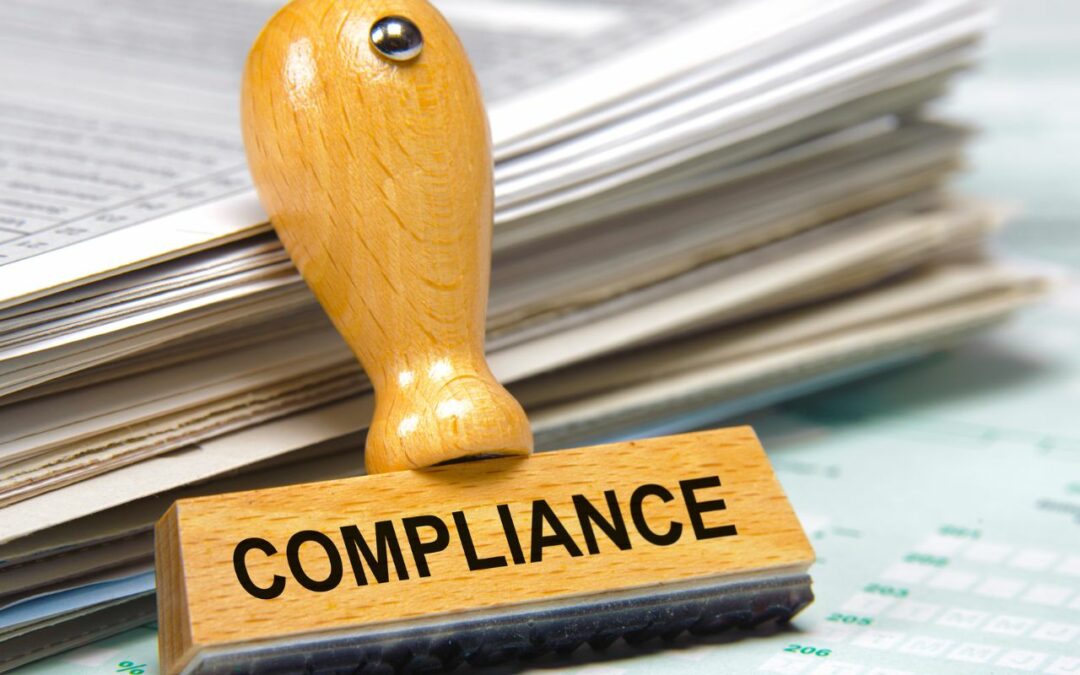So, you’ve made the leap into property investment and now it’s time to tackle the complex world of tax compliance.
Navigating the tax implications of property investment can be daunting, but fear not – we’ve got you covered. In this article, we’ll explore three key tax compliance tips that every property investor should be aware of.
Whether you’re a seasoned investor or just starting out, these tips will help ensure you stay on the right side of the tax authorities and maximize your returns.
- Keep meticulous records: One of the most important aspects of tax compliance is keeping detailed and accurate records of all your property-related expenses and income. This includes receipts, invoices, bank statements, and any other relevant documentation. By maintaining comprehensive records, you’ll have the necessary evidence to support your tax deductions and minimize the risk of an audit.
- Understand deductible expenses: As a property investor, you are entitled to claim deductions for various expenses related to your investment property. These expenses can include mortgage interest, property management fees, repairs and maintenance, insurance premiums, and even travel expenses in certain circumstances. It’s crucial to familiarize yourself with the specific deductible expenses applicable to your situation, as this can significantly reduce your taxable income.
- Seek professional advice: Given the complexities of tax compliance, it’s highly recommended to seek professional advice from a tax accountant or property tax specialist. They can provide expert guidance tailored to your specific circumstances, ensuring you fully understand your tax obligations and opportunities. A professional can also help you navigate any changes in tax legislation that may impact your property investment.
By following these three tax compliance tips, you can confidently manage your property investment from a tax perspective. Remember, staying on top of your tax obligations not only keeps you in good standing with the authorities but also allows you to optimize your returns and achieve your financial goals.
Key Takeaways
- Keep detailed and accurate records of property-related expenses and income to support tax deductions and minimize audit risk.
- Familiarize yourself with deductible expenses applicable to your situation and consider potential tax savings when budgeting for property expenses.
- Seek professional advice from tax accountants or specialists to receive expert guidance tailored to your specific circumstances and ensure compliance with tax regulations.
- Maximize depreciation benefits by accurately assessing the depreciable value of property assets, identifying depreciable components, and working with qualified professionals to optimize tax advantages.
Understanding Tax Deductions
Understanding tax deductions is crucial for property investors as it allows you to reduce your taxable income by claiming expenses related to your property investment. When it comes to tax planning, being well-versed in the deductions available to you can significantly impact your investment strategies. As a property investor, you need to be meticulous in identifying which expenses can be claimed as deductions to maximize your tax benefits.
One of the key deductions for property investors is the interest on loans used to finance the investment property. This can include mortgage interest, interest on loans for renovations or repairs, or even on credit cards used for property-related expenses. It’s essential to keep detailed records of these expenses to support your claims. Additionally, property investors can also deduct property taxes, insurance, and depreciation of the property value. Understanding the criteria and regulations around these deductions is vital for effective tax planning.
Another crucial aspect of tax deductions for property investors is claiming expenses related to property maintenance and management. This can include costs for repairs, utilities, property management fees, and even travel expenses incurred while managing the property. Being well-informed about these deductions can influence your investment strategies, as you can factor in potential tax savings when budgeting for property expenses.
Record-Keeping Best Practices
To effectively capitalize on the deductions available to property investors, meticulous record-keeping is imperative to substantiate your claims and ensure compliance with tax regulations. Documentation organization is key to maintaining accurate records. Create a system where all relevant documents such as property purchase agreements, rental income records, expense receipts, and mortgage statements are filed and stored in an easily accessible manner. This won’t only facilitate efficient audit preparation but also ensure that you have the necessary documentation readily available in case of any inquiries from tax authorities.
Expense categorization is another crucial aspect of record-keeping. Clearly categorize all expenses related to your property investments, such as maintenance and repairs, insurance, property management fees, and any other relevant costs. This will help you to accurately identify deductible expenses and provide a clear breakdown of your investment activities.
Receipt management is an integral part of maintaining proper records. Keep all receipts and invoices in a secure and organized manner, whether in physical or digital form. Utilize software or apps specifically designed for expense tracking to streamline this process and ensure that no receipts are lost or overlooked.
Maximizing Depreciation Benefits
Maximize your depreciation benefits by accurately assessing the depreciable value of your property assets and strategically allocating depreciation expenses to optimize tax advantages. Depreciation is a key element in maximizing tax benefits for property investors. Understanding depreciation strategies and investment property deductions is crucial for optimizing tax advantages.
To maximize depreciation benefits, it’s essential to accurately assess the depreciable value of your property assets. This involves identifying and segregating the different components of your property that are depreciable, such as building structures, fixtures, and fittings. Properly allocating the costs to each depreciable component ensures that you’re claiming the maximum depreciation deductions available.
Strategic allocation of depreciation expenses is another critical aspect of maximizing tax advantages. By working with a qualified quantity surveyor or tax professional, you can ensure that depreciation is allocated in a way that maximizes tax benefits. This may involve utilizing methods such as accelerated depreciation or bonus depreciation to front-load deductions and increase tax savings in the earlier years of property ownership.
Understanding the depreciation strategies specific to investment properties is essential for optimizing tax advantages. Leveraging depreciation deductions can significantly reduce taxable income, allowing property investors to retain more of their cash flow for reinvestment or other purposes. By staying informed about the latest tax regulations and working with professionals who specialize in property tax, you can ensure that you’re maximizing depreciation benefits within the bounds of tax compliance.
Frequently Asked Questions
What Are the Tax Implications of Owning Property in Multiple States or Countries?
Owning property in multiple states or countries can have significant tax implications. Cross border investments can lead to complex income tax considerations due to varying regulations.
Foreign property ownership may require adherence to specific reporting and filing requirements. It’s crucial to stay updated with the tax laws in each jurisdiction to ensure compliance and avoid penalties.
Seeking professional advice can help navigate the complexities of managing tax obligations in different locations.
How Does the Tax Treatment Differ for Short-Term Rental Properties Compared to Long-Term Rental Properties?
When it comes to short-term rental taxes, the treatment differs from long-term rental taxes. Short-term rental properties are typically taxed as ordinary income, subject to self-employment tax, and may have additional lodging or hotel taxes.
On the other hand, long-term rental properties are usually taxed at the long-term capital gains rate, offering potential tax advantages.
It’s important to understand these distinctions to ensure proper tax compliance as a property investor.
Are There Any Specific Tax Considerations for Property Investors Who Use a Property Management Company?
When using a property management company, you should consider the tax implications. Property management fees are deductible as business expenses, reducing your taxable income.
However, as the property owner, you still maintain tax reporting obligations, ensuring accurate income and expense reporting.
What Are the Tax Implications of Selling a Rental Property and How Can Investors Minimize the Tax Impact?
When selling a rental property, you can defer taxes by reinvesting in a like-kind property through a 1031 exchange.
Additionally, if the property has been your primary residence for at least two of the past five years, you may qualify for a capital gains exclusion.
Consulting with a tax professional and carefully documenting all expenses and improvements can help minimize the tax impact.
These strategies can optimize your tax position when selling a rental property.
How Does the Tax Treatment Differ for Different Types of Investment Properties, Such as Residential Rental Properties, Commercial Properties, or Vacation Rentals?
When it comes to tax implications, different types of investment properties have varying treatment.
For residential rental properties, you can take advantage of depreciation deductions and other tax benefits.
Commercial properties may offer different tax incentives, like accelerated depreciation.
Vacation rentals often have stricter rules, but careful investment strategies can still yield tax advantages.
Knowing the specific tax treatment for each type of property can help you maximize your tax benefits.
Final Thoughts
Now that you have a better understanding of tax compliance for property investors, remember that staying organized and keeping detailed records is crucial.
Just as a well-maintained property can yield higher rental income, meticulous record-keeping can lead to maximum tax benefits.
So, like a property investor who carefully maintains their property, diligently maintaining your tax records can lead to a more profitable investment portfolio.
Keep track of your deductions, maximize depreciation, and watch your investment grow.











